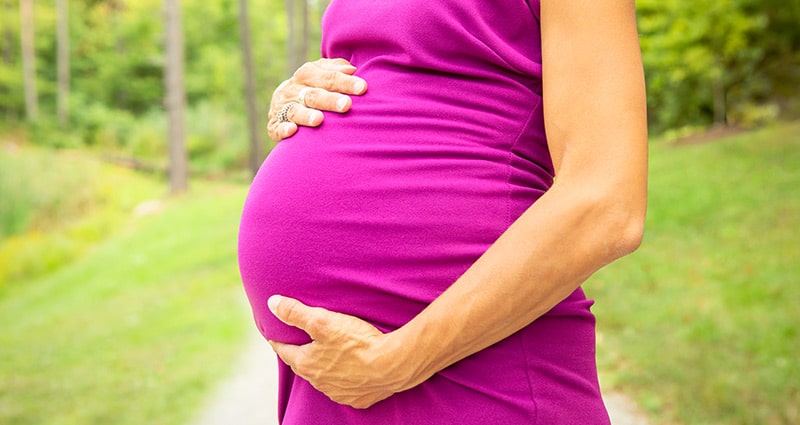Pregnancy-related strokes are among the most common causes of serious, long-term disability after pregnancy. Fortunately, they are rare, happening in only about one to two in 10,000 pregnancies.
Allahyar Jazayeri, MD, PhD, maternal-fetal medicine specialist with Our Lady of Lourdes Women’s & Children’s Hospital, shares about what expecting moms and women planning to become pregnant should know.
Early and consistent prenatal care as early as possible and managing blood pressure are keys to reducing stroke risk during pregnancy. Once you find out you’re pregnant, make that first prenatal appointment right away.
Maternal Age and Stroke Risk
Stroke is a serious and potentially life-threatening condition that occurs when blood flow to the brain is disrupted.
The incidence of stroke in pregnancy continues to increase in the U.S., primarily because of hypertension, another word for high blood pressure, and advanced maternal age as more people wait until they’re older to begin families. As women age, they’re more likely to have hypertension and other comorbidities that increase their risk for stroke.
Those at highest risk for having stroke in pregnancy are women with a diagnosis of eclampsia, congenital heart malformation, pre-eclampsia sepsis or connective tissue disorders.
Stroke Risk and Pre-eclampsia
Pre-eclampsia, a pregnancy-related condition characterized by high blood pressure that develops during pregnancy, can increase the risk of stroke. Women who had pre-eclampsia are also more likely to have other risk factors for stroke, such as high blood pressure, obesity and diabetes, and are at an increased risk of stroke later in life.
Usually diagnosed after 20 weeks’ gestation, pre-eclampsia can only be treated by delivering the baby. When pre-eclampsia occurs early in pregnancy doctors try to wait until the baby is older and bigger. The baby can be given steroids to help lung maturity before birth. Your doctor may move toward delivery if things worsen.
Prevention
While it is not possible to completely prevent pre-eclampsia or stroke, there are steps that women can take to reduce their risk. These include:
- Getting regular prenatal care to detect and manage hypertension if it develops during pregnancy
- Managing chronic health conditions, especially high blood pressure, before and during pregnancy
- Getting regular exercise
- Eating a healthy diet rich in fruits, vegetables, whole grains and lean protein
Obesity and diabetes contribute to hypertension, which is the real risk factor for stroke. If someone is obese with normal blood pressure, it doesn’t necessarily mean they’re at higher risk of stroke. Maintaining a healthy weight and managing diabetes, including gestational diabetes if a mom is diagnosed, are ways to reduce the risk of hypertension and other complications in pregnancy.
Stroke Symptoms
Symptoms of stroke during or after pregnancy are the same as stroke in general, such as headache, numbness, weakness, acute changes in vision. Those are things that need to be evaluated quickly.
Remember to BE FAST:
- Balance Issues
- Eyesight Changes
- Face Drooping
- Arm or Leg Weakness and/or Numbness
- Speech Difficulty and/or Acute Disorientation
- Time to Call 911
If you are pregnant or planning to become pregnant, talk to your healthcare provider about your risk of stroke. They can help you to develop a plan for managing your health through all maternity.




